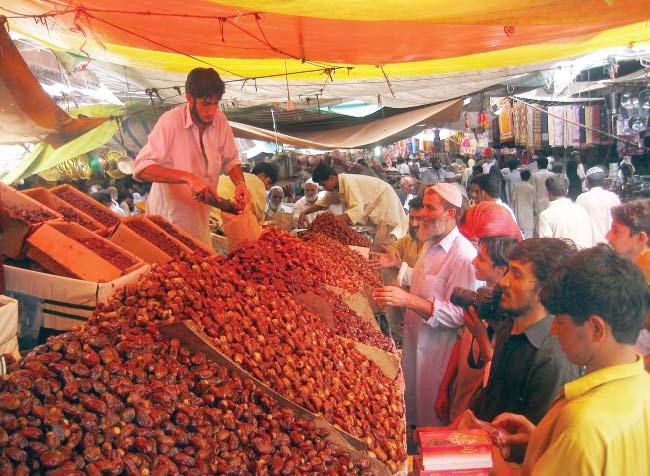
Amid the rising costs of woollen clothing, flea markets are once again providing an essential lifeline for low-income families across Pakistan, offering more affordable second-hand winter wear.
Every year in winter season people from Rawalpindi, Islamabad, and other cities flock to these markets in search of warm clothing for their families. As the temperature drops, there is a noticeable surge in shoppers looking for sweaters, jackets, caps, socks, and hoodiesitems essential for protecting themselves, especially when battling seasonal allergies, chest infections, and flu.
For many poor and low-income citizens, flea markets have long been the go-to solution. Importers, mostly from Western countries, bring in used clothes that, despite their origin, are often the only affordable option available. However, the impact of inflation has severely diminished purchasing power across all segments of society, but it is the lower middle class and the poor who are bearing the brunt. Even flea market prices, once considered affordable, are climbing, making it increasingly difficult for families to meet their basic winter needs.
Sajid Abbasi, a father of four, shared his concerns: "Even the second-hand clothes we used to buy for our children every winter are now too expensive," he said. Struggling to make ends meet, Sajid expressed frustration at how even the essential winter items were upsetting his monthly budget. "I can't imagine the hardship of those even worse off, who can't afford these clothes."
This situation is not unique to Sajid. Many families, especially those who lost jobs during the economic downturn, are facing similar challenges.
The repercussions of poor government policies, particularly during the tenure of the Pakistan Tehreek-e-Insaf government, are still being felt by the working class. Despite efforts by the current government to revive the economy, the effects of past mismanagement remain visible in the daily struggles of the poor.
Abida Rehman, a single-income household mother of three, described the difficulties of managing winter shopping on a tight budget. "With prices surging, it's become harder to buy clothes for my children," she said. She also criticised online retailers, claiming that websites selling imported clothes are charging excessively while compromising on quality.
Despite these challenges, flea markets still provide a much-needed source of clothing for families like Nisar Ahmed's. "Flea markets allow people to present themselves with dignity in a society where appearance matters," he said. For Nisar, a father of four, flea markets are still a more affordable alternative to expensive retail outlets. "It's better than going to main markets. At least here, we can maintain some dignity."
Retailers in these markets attribute the rising costs to broader economic factors. Bilal Nadeem, a seller of second-hand clothing, explained that the prices of winter items have increased due to inflation and the broader economic environment. "If we sell at lower prices, we risk making losses. Even now, we're making minimal profits," he said. Amanullah, another vendor at Sunday Bazaar, pointed to the rising cost of fuel and increased taxes as major contributors to higher prices. "Last year, we sold men's jackets for Rs1,200-1,500; this year, they're priced at Rs1,500-2,000. Women's and children's clothes have also become more expensive."
The rising cost of living continues to put immense pressure on low-income families, forcing them to make difficult choices when buying winter essentials. While flea markets used to offer some relief, their growing unaffordability is becoming a major concern for both buyers and sellers.
If this trend continues, many more people will find it difficult to even shop at flea markets. The situation calls for urgent actionequitable wealth distribution, job creation, and welfare-oriented measures to protect the lower-middle and poor segments of society.


1719131916-0/Lily-Allen-and-David-Harbor-(1)1719131916-0-165x106.webp)





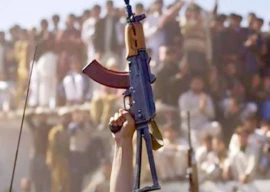



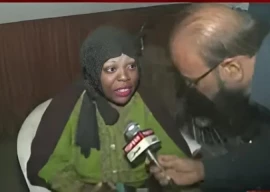

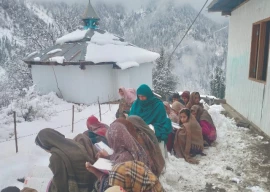
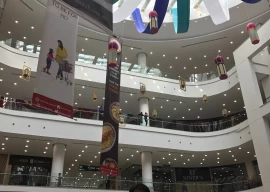

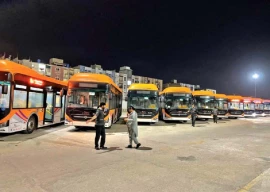






COMMENTS
Comments are moderated and generally will be posted if they are on-topic and not abusive.
For more information, please see our Comments FAQ